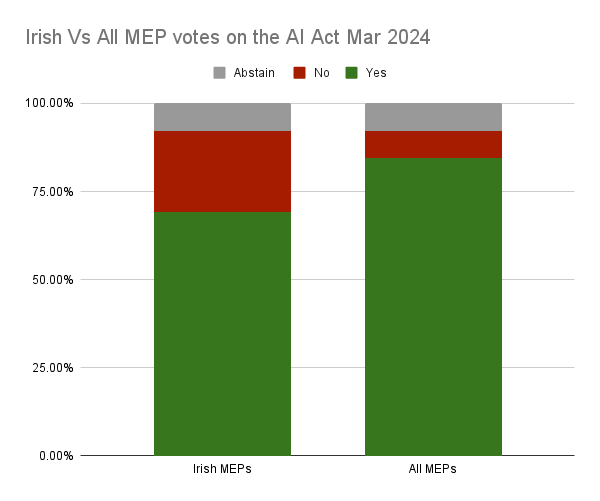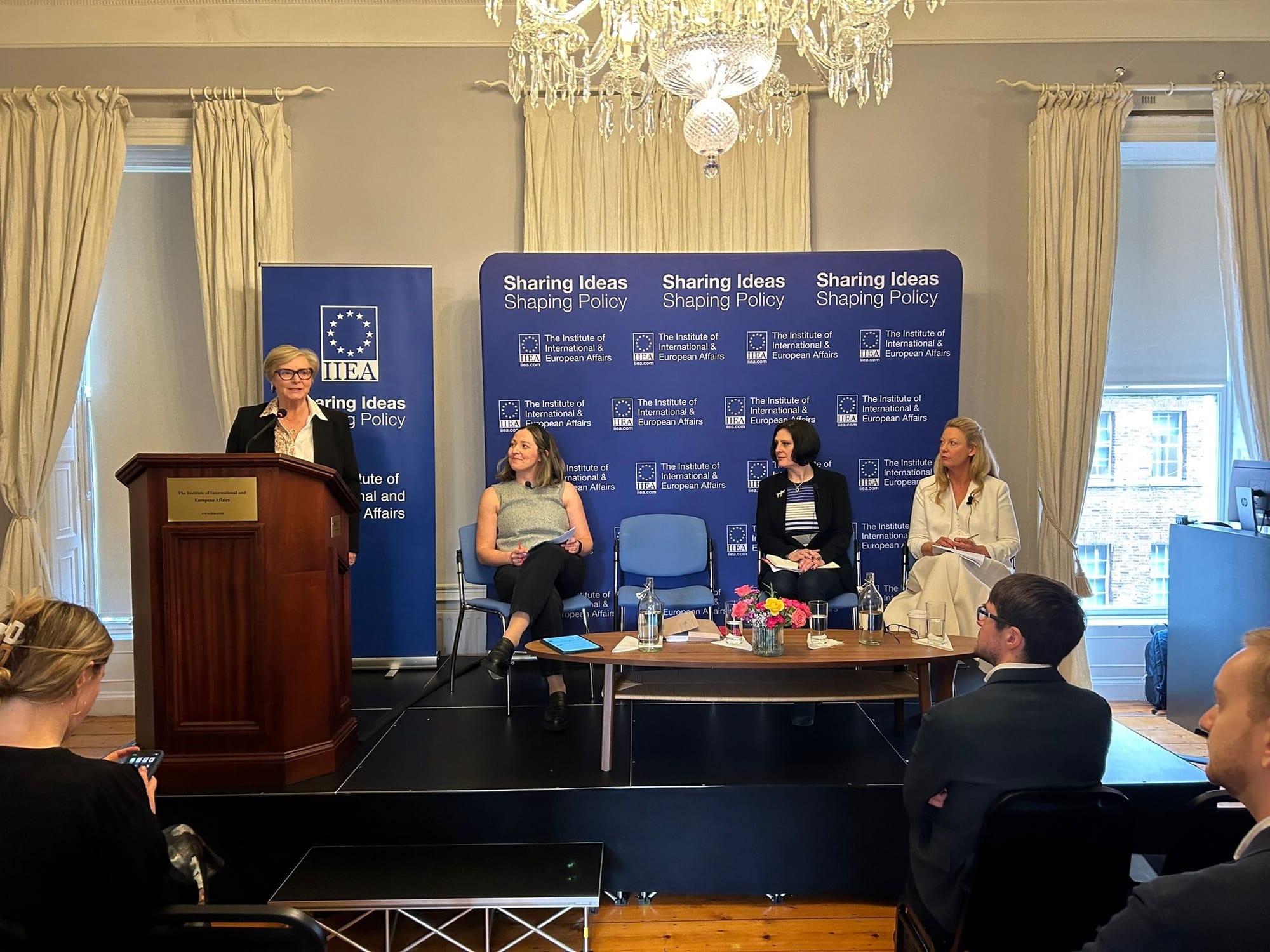Here's how our MEPs voted on Europe's new A.I. rules

I’m in Brussels this week, and our 13 MEPs are up the road in Strasbourg voting on Europe’s first substantive piece of regulation on Artificial Intelligence, the A.I. Act.
The regulation passed in a landslide - 523 of Europe’s elected reps voted for the regulation, or almost 85%. The Irish contingent deviated a little; of our 13 MEPs, 9 voted to pass the Act, 3 voted against, and 1 abstained (voting data is here).

The Fine Gael, Fianna Fáil and Green MEPs all voted in favour {FG's Deirdre Clune was involved in negotiations - her plenary remarks are here}.
The three voting against were Clare Daly, Mick Wallace, and Luke (Ming) Flanagan, while Sinn Féin’s Chris MacManus abstained.
There are lots of reasons for voting against something; as of this evening I cannot find publicly stated reasons why these MEPs voted against yesterday. In the past Claire Daly has tweeted objections to the Act, and Hugh O'Connell covered Irish MEP voting on parts of the draft Act on police use of Facial Recognition Tech (FRT) back in the summer.
One reason for voting against could be a feeling that the Act doesn’t go far enough to protect the public interest against the growing use of AI in our lives. Tech and society experts who have been lobbying for a stronger Act were not publicly advocating a Yes vote, and are disappointed with the final version.
The Act that went before MEPs yesterday is a watered down version MEPs voted on last June before the heads of government of the bloc* got their hands on it. That old version was seen as providing stronger protections of fundamental rights, and greater potential for accountability for misuse of AI tech. In that vote on the earlier draft, the Fine Gael**, Fianna Fáil and Green MEPs also voted in favour of the proposal, while the four MEPs mentioned above abstained.
Talking to people here in Brussels about the lukewarm reception of the Act reminded me of another recent debate. At the IIEA on Friday I chaired a discussion on another EU regulation, a Directive on Violence against Women and Domestic Violence. That regulation, somewhat astonishingly, fails to criminalise rape based on lack of consent, a result of watering down by the German and French Governments. In that debate, on International Women’s Day, and while voters were savaging proposals to amend our constitution, the DRCC’s Rachael Morrogh channeled frustration many were feeling that day at women (in this case) being asked to accept slow, incremental progress, when radical change is needed.

MEP Francis Fitzgerald, also on the panel, shared some of the frustration, but did see the regulation as a positive development, with new rules on, for example, online and image based abuse.
She then warned that getting rules like this through is likely to become a lot more challenging after the June elections. Most in Brussels expect a swing to extremes in the incoming Parliament, so in her view (I am paraphrasing her) “try again later” was not an attractive option.
She also flagged something insightful I hadn’t considered as we think about the future of the EU’s regulatory powers, for tech and beyond. Yes the Parliament might swing more to extremes, but the political realignments happening within member states will also have an impact on the bloc’s ability to regulate.
We’re used to thinking of the likes of Orban as blockers, but her point was broader; the rise of extremist - and in particular nationalist and anti-EU - forces within countries like Germany, France and others will make it harder for heads of Government of all stripes to be seen to delegate authority to the EU.
For those of us who have resigned ourselves to the EU as the only (albeit imperfect) regulatory force with the will, legitimacy and enforcement powers to deal with tech issues, this is not something to celebrate.
See also:
- A blog I did back in 2022 on how our MEPs voted on the Digital Services Act
- Euractiv article on the vote, with lots of great links to other AI Act content
- Video of the IIEA event
- "Hesitation to introduce EU-wide consent-based definition of rape ‘unacceptable’" The Irish Times
*EU policy making is mind boggling. Thank you Liva Vikmane for explaining this to me and helping me find the voting records, though anything I got wrong is my fault alone!
** Except for Colm Markey, who was marked as not present for the June vote.




